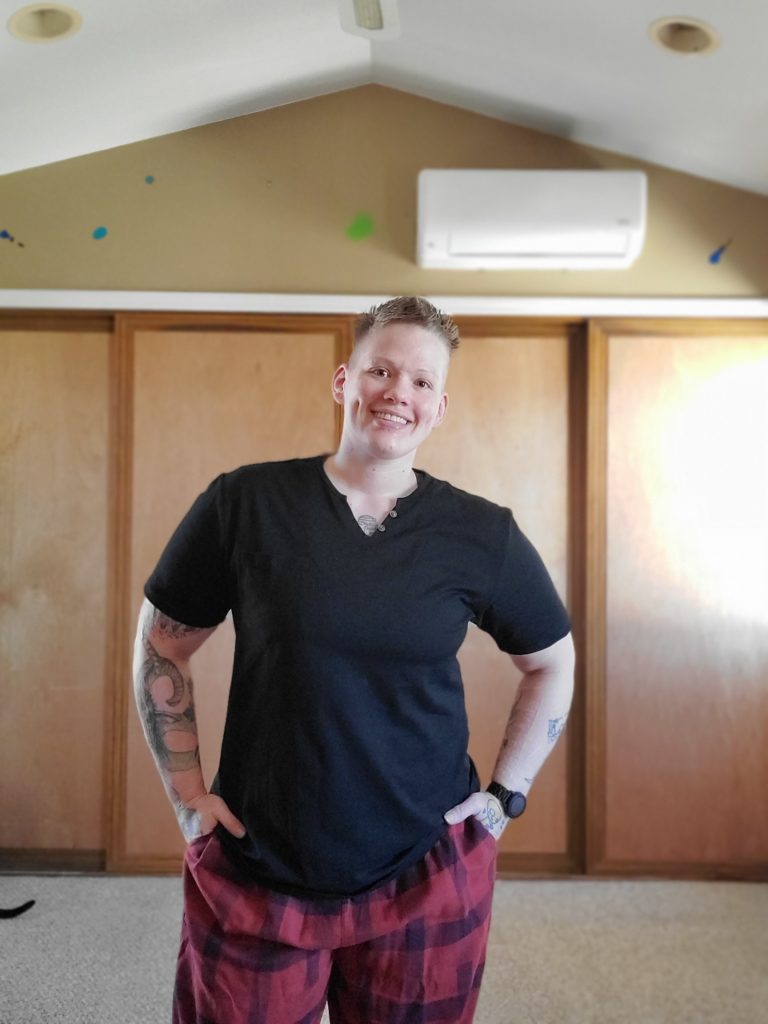Lara Modelski, of Waianae, Hawaii, shares her powerful experience of transforming what felt impossible into possible.
On my aunty’s couch I nursed my ear, swollen since the afternoon from my cousin’s left hook. Evidently, I was no longer welcome at his place.
One after another, my relatives took me in and, one after another, kicked me out when I proved far too much to handle. This grandma’s couch, then, was for me the last in a line of family couches. I didn’t like what I was feeling. I took one anxiety pill after another and waited to feel nothing at all.
I had come from Delaware, where at 15 I had moved to be with my father. Now I was 26; I hadn’t set foot in Hawaii for over a decade. News of my homecoming had flown ahead; when my mother caught wind, she said simply, “She’s not staying with me.”
I couldn’t blame her. I spent my final years in Delaware in and out of jail, rehab, and hospitals struggling with severe depression, suicidal ideation, and addiction. Plus, we never had a close relationship. My return to Hawaii was a last-ditch effort to get clean and live a normal life. But who would believe it? I didn’t believe it myself.

Lara Modelski in Waianae, Hawaii, September 2021.
My return to Hawaii was a last-ditch effort to get clean and live a normal life. But who would believe it? I didn’t believe it myself.
In Delaware I had been introduced to SGI Nichiren Buddhism, but I was steeped in my own thing and merely used my faith to channel my own self-centered practices. I did attend some SGI Buddhist meetings, though, and while I never once read the words of Nichiren Daishonin, the joyful members of the SGI community touched something in me. Arriving in Oahu in 2016, my only sure plan was to connect with the Hawaii members at the local SGI Buddhist center. The Hawaii center became a place (in fact, the only place) where no one ever told me to leave.
What struck me about these people was their concern for and belief in me. Though I likely sounded like a nut, they just listened and listened and then gently, patiently encouraged me.
Yet I felt I wanted to be honest: “Look, you have it wrong, OK? I’m too far gone; there’s no way I’m gonna be happy!”
But somewhere in the back of my mind I thought: Can it really be that all of them are wrong? They are so many, all happy, all certain I can be, too.
Still, I wouldn’t abandon my old beliefs. Though encouraged to take up this Buddhism with a single, undivided mind, I didn’t listen. I continued to believe powers greater than me determined my destiny. I stabilized, briefly, and then fell back into old ways and old drugs, burning every bridge I’d rebuilt.
Now, put up on the couch of my last willing relative, I felt shameful and anxious. I lost count of the medications I took, waiting for any one of them to kick in. I needed a release. I needed air. I decided to go up onto the roof.
Up there, I heard a voice, not quite my own. It told me my body and mind were too far gone. I needed to do away with this body and start anew.
A familiar numbness washed over me—the pills kicking in—and I crawled to the edge of the roof and swung from the eave onto a 10th-floor balcony below, to rest. The lady whose balcony it was caught my attention. She beckoned me inside. The whole arsenal of pills kicked in at once, and I entered a waking dream. I remember thinking: She’ll lure me inside and kill me.
In my state, it was easy to turn softly on the balls of my feet, to break into a light sprint for the low balcony railing, easy to sail into 10 stories of open air, thinking and feeling nothing at all.
When I came to, my body was a mess. I had died, they told me, and been resuscitated. I had landed feet-first on a thin strip of grass between the sidewalk and street.
You hear stories of near-death survivors who come back with a new lease on life. Not me. I felt utterly empty.
As I recovered, of course SGI members came to visit. While I fumed, they listened, as always. Our conversations sparked in me a will to live. They left me a book called You Were Born to Win, by Daisaku Ikeda. When they left, I began to read, and that spark became a flame.
The next morning, I did gongyo and continued daily. I had made the decision to practicing chanting Nam-myoho-renge-kyo exclusively. After that fundamental shift I was able to establish a daily practice, sincerely study and deepen my faith.
I had made the decision to practicing chanting Nam-myoho-renge-kyo exclusively.
Victory followed victory. First, I did the impossible: I got clean. I decided I would never succumb to drugs again. A sense of responsibility to show the validity of this Buddhism helped me weather the brutal withdrawals.
Next, my mom, seeing the change in me, began to also practice Buddhism. Now very much on speaking terms, we grow together.
Third, I summoned the courage to pursue my dream of becoming a psychiatrist to encourage and help others reveal their highest potential. I received my associate degree in 2020 and am now getting my bachelor’s in psychology.
Of course, challenges arise every day. But I know that so long as I refuse to be defeated, keep fighting and keep practicing, I’m going to win. And knowing that feels good.
